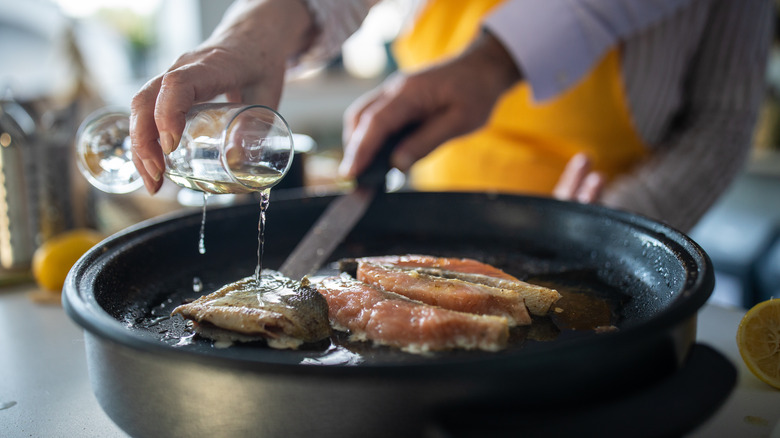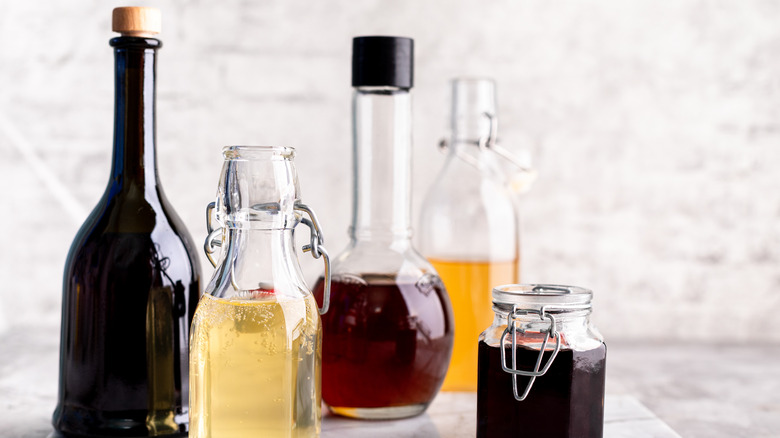Here's How Long It Takes For Alcohol To Cook Out Of A Dish
It's natural to assume that when you add a splash of white wine or brandy to a dish, the alcohol burns off quickly with none remaining in the final dish. After a few moments in the heat of the pan, it's all flavor and no booze, right? That myth has seemed to prevail in the kitchen for many years, but unfortunately, it's just that: a myth.
Alcohol actually takes much longer to cook out of a dish than might be expected. While there are many factors that go into this, including the type of dish you're making, the ingredients used, and how and at what temperature it's being cooked, you're going to need much more than a few minutes of simmering to burn off the alcohol. Most of the alcohol we use for cooking, whether that's cooking with wine, cooking with beer, or cooking with a spirit, it can take up to three hours for all of the alcohol to cook out. That means that in recipes with shorter cook times that include some sort of booze, there are at least trace amounts of alcohol remaining when the food hits your plate.
Tips for cooking with alcohol
While this fact means that there's a good chance that at least some alcohol remains in your final dish, that doesn't mean it's enough to get you tipsy. Usually, the amounts of alcohol called for in a recipe are far smaller than your average drink (think: a tablespoon instead of an 8-ounce glass), and you're of course consuming it with food, which helps to minimize the effects.
However, if any of your dinner party guests are abstaining entirely from alcohol, it's best to skip the white wine in your dish altogether. The same goes for cooking for small children or folks who are pregnant. It's likely that the amount of alcohol in the dish is low enough to avoid any harm, but it's best to play it safe.
If you enjoy cooking with alcohol but want to minimize the amount you use, be selective with your recipes and adjust as needed. Try a pan sauce that uses only a splash of wine to deglaze. Or, if you're making a risotto that calls for a couple of cups of wine, try adding a small portion of that and substituting the rest with meat or vegetable stock and a splash of red or white wine vinegar to achieve similar flavors without the elevated alcohol content.

